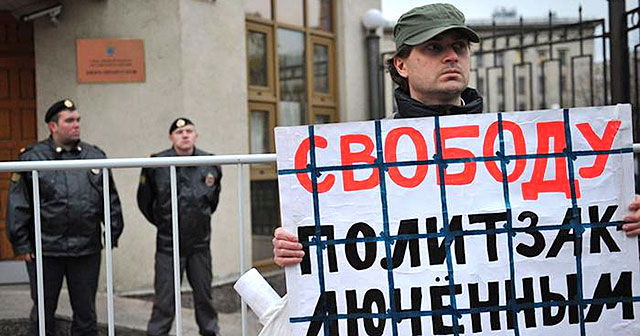Yesterday went unnoticed news that may affect thousands of Russian Muslims – current and potential political prisoners and their relatives. Chairman of the Foreign Affairs Committee of the U.S. Congress, Eliot Engel, representing the Democratic Party, in cooperation with Congressman Michael McCaul, representing the Republican Party, introduced a resolution calling on the President of the United States to seek the release of all political prisoners in Russia and to impose new sanctions against Russia in the event of its refusal to do so. The project emphasizes the need to seek the release of opposition figures, journalists, civil society activists, and religious freedom fighters. Given that the project was introduced by representatives of both rival parties as well as the chairman of the relevant committee, there is a good chance that it will be adopted.
What does this mean for Muslims? It should be noted that the majority of political prisoners in the broad sense, officially listed by the Memorial Human Rights Center, are currently Muslims. Why do we say “in the broad sense” and “currently”? The point is that at a certain point “Memorial” began to identify political prisoners persecuted on religious grounds separately from those for whom such motives were not evident. And although Muslims are included in the second list (https://memohrc.org/ru/pzk-list), they dominate the first (https://memohrc.org/ru/pzk-list). And they dominate for the time being, because in recent years this list has been actively supplemented by representatives of other persecuted communities, be it Protestants or “Jehovah’s Witnesses”, who are officially banned in Russia.
However, this does not change the essence of the matter. Those persecuted on religious grounds are considered political prisoners anyway, and are explicitly mentioned as one of the categories whose release this bill seeks to achieve. Moreover, as we have written before, a number of documents adopted by the U.S. Congress and the State Department have identified Muslims in Russia as one of the main groups oppressed on religious grounds. Of course, the Kremlin is unlikely to rush to implement such demands in response to the first request; rather, it will react to the adoption of such a law with new accusations of Russophobia, etc.
However, it should be remembered that the much more economically powerful USSR also claimed for a long time that there were no “political prisoners” in it. But in the end, their release and the beginning of perestroika were largely achieved by economic pressure on the USSR during the Cold War. Now, as then, the Kremlin is beginning to lose the sources of income that allowed it to pursue an aggressive foreign and domestic policy without regard to the world, due to a sharp drop in oil prices, especially in conjunction with the collapse caused by the coronavirus. And if targeted sanctions are added for each prisoner of conscience, it may ultimately force the regime to embark on a new restructuring and release of political prisoners, as it did in the late 1980s. Insha Allah.

